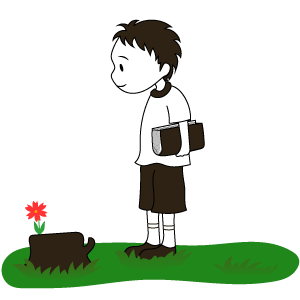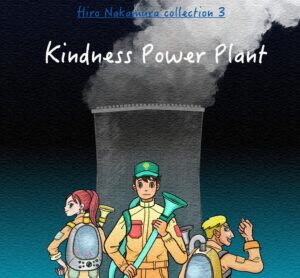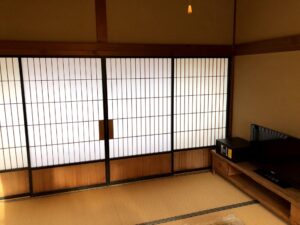Once upon a time, Hideyo Kobayashi stated in his essay on Dostoevsky that “the personal novel is dead.”
However, when asked what a “personal novel” is, many people probably don’t have a clear understanding of it.
According to Wikipedia, the term originally emerged in the 1920s as a pejorative term used to describe the works of the Shirakaba literary group.
Kobayashi probably meant “personal novel” in that context.
But in today’s society, many people might wonder, “What exactly was the Shirakaba literary group?” It conjures up an image of something rather weak and insignificant.
Many people tend to confuse “personal novelists” with “bohemian” writers, associating them with figures like Osamu Dazai, Kazuo Dazai, Ango Sakaguchi, and more recently, Chojiro Kuratani and Kenji Nishimura. While there is some overlap, the personal novel is merely a technique, whereas bohemianism is a way of life.
It involves creating a narrative based on a collection of facts, aiming to achieve the artistic goal of “depicting truth.” Much of proletarian literature falls into this category.
In essence, it is a technique that limits itself to the author’s personal experiences, focusing on their surroundings and self, emphasizing inner reflection over objective description.
Basically, it’s a style of writing that recounts daily life from the first-person perspective—more bluntly, it’s an unvarnished exposure of one’s self-consciousness.
In that sense, it might be similar to a blog.
Besides Kobayashi, many writers openly disliked the personal novel, with Saichi Maruyama being a prime example. Reading the literary criticism and essays of Mishima Yukio, Tanizaki Jun’ichiro, and Ishihara Shintaro, one can discern that they too strongly disliked this genre. This might be an oversimplification, but broadly speaking, the concept of “anti-autobiographical fiction” versus “autobiographical fiction” boils down to romanticism versus realism.
However, personally, I like both. I don’t dislike autobiographical fiction, nor do I think romanticism is inherently contrived. I simply appreciate what’s interesting.
I imagine many novel fans feel the same way. They read Kenji Nishimura and they read Dostoevsky. This kind of debate is ultimately pointless… but a problem has arisen recently.
The emergence of AI.
Recently, there was a controversy surrounding a novel that won the Akutagawa Prize, as it was reported that AI was used in part of the writing. Many are probably aware of the ensuing debate about the merits and demerits of the work and the appropriateness of the award.
However, personally, I didn’t consider this a major issue (I don’t use AI myself; I don’t even see the point). Personally, if AI can create good works, then I think it should be used.
To use the earlier example, with all the works of literature inputted into AI, romanticist works like those of Mishima Yukio or Tolstoy might surprisingly soon win major literary awards. In other words, entirely AI-generated works.
Many novelists meticulously plan their plots, like memorizing openings in a game of shogi, before they start writing. This is precisely what AI excels at. Once, Osamu Dazai criticized Naoya Shiga, saying, “Your novels are like chess puzzles; they’re not interesting.” Just as AI has come to surpass human masters in shogi (Japanese chess), I believe that, despite the inevitable backlash, a romantic novel surpassing Tolstoy will arrive sooner than we imagine.
If things continue this way, not only pure literature but also most children’s and young adult novels will likely be dominated by AI-generated works. And, needless to say, simplistic children’s stories will be no exception.
(Content above this line is displayed free of charge.)
If you think this is absolutely impossible, try using ChatGPT for free. It can surprisingly easily create adventure stories, historical dramas, and science fiction. Even cleverly crafted mystery novels with intricate plot twists.
What about autobiographical fiction, however? That is, novels that expose and reveal everything about the author’s life—this is likely a genre that AI will find difficult to create.
Because a computer cannot engage in self-disclosure. In other words, it lacks self-awareness. Autobiographical fiction is essentially a product of intense self-awareness.
However, even if AI were to create works similar to those of Kenji Nishimura, Osamu Dazai, or the later works of Ryunosuke Akutagawa, they would likely lack the genuine emotional impact. They would probably just be narratives mimicking the lives of mentally unstable individuals.
This suggests that, regardless of quality, autobiographical fiction may once again come into the spotlight in future literature.
But, considering the bigger picture, this shift might only be a matter of a few decades.
However, as long as the essence and nature of humanity remain a mystery to humankind, unique experiences and emotions will always hold value. I feel that when these elements are linked with new philosophies and ideas, a new horizon for literature will open up.
As Kenzaburo Oe also mentioned in his book, “Kenzaburo Oe Talks About His Own Works (Shinchosha Bunko),” he predicted that the future of the novel would likely see the rise of novels written in a conversational, informal style, similar to modern blogs.
However, he also said that such writing still needs further refinement.
While there are no absolutes in this world, and this applies to all fields, there are things that AI cannot do. There are areas where AI might be able to do things, but it will still take time, and I feel that there is still potential for human creativity in these areas.
And if we find and explore these areas, paradoxically, we will create novels that are closer to being truly human. I want to write that kind of novel myself.
“AI: Friend or Foe?”












